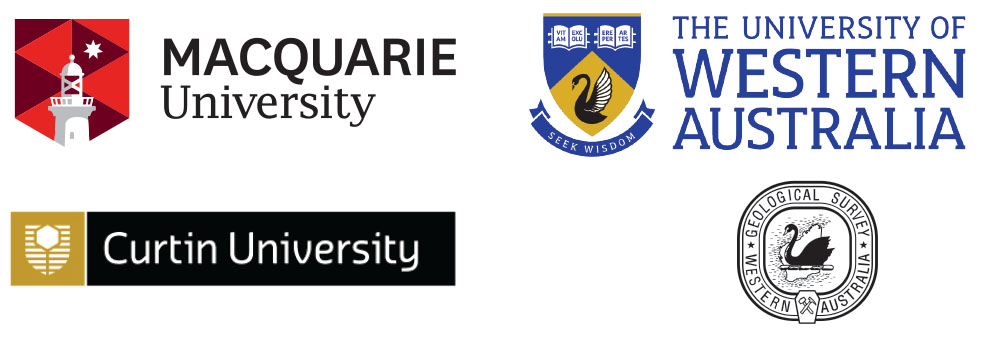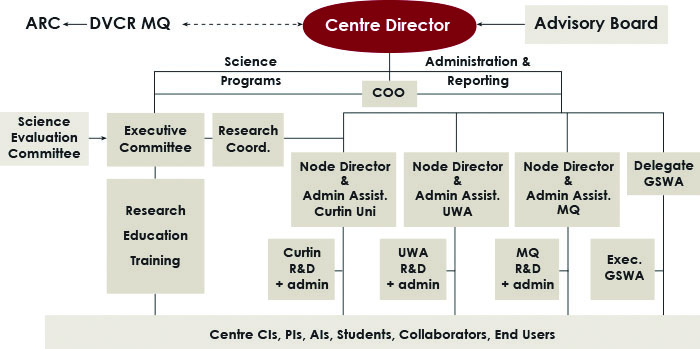Structure
CCFS builds on a world-class infrastructure base, and multiplies the capabilities of three internationally recognised centres of research excellence: Macquarie University (Administering Institution), Curtin University and the University of Western Australia. The Geological Survey of Western Australia is a Partner Institution and researchers from Melbourne University and the University of New South Wales are formally affiliated. The overseas nodes led by Partner Investigators in France, China, Germany and the USA are contributing resources and provide access to a wide variety of expertise and instrumental capabilities. Memoranda of Understanding (MOU) for research collaboration and postgraduate exchange and joint programs, provide formal affiliations with four additional global institutions with leading reputations in the field. CCFS also has formal Cotutelle MOU with a further 19 global institutions. CCFS incorporates several pre-existing centres within the Administering and Collaborating Institutions: the GEMOC Key Centre (http//www.gemoc.mq.edu.au/) at Macquarie University retains its structure and is fully incorporated within CCFS; the research and strategic activities of CET (Centre for Exploration Targeting; http://www.cet.edu.au/) at the University of Western Australia lie within CCFS; and the activities of TiGeR (http://tiger.curtin.edu.au/) at Curtin University are also aligned with CCFS.

There is active national collaboration with state Geological Surveys, Geoscience Australia (GA), CSIRO, the Australian National University (RSES), University of Newcastle, the University of Sydney, the University of Wollongong, the University of Adelaide and several major industry collaborators (national and global), across a broad range of programs related to the CCFS strategic goals. A distinctive feature of CCFS is the high level of active international collaborations and reciprocal links (see the section on International links).


 ARC Centre of Excellence for Core to Crust Fluid Systems
ARC Centre of Excellence for Core to Crust Fluid Systems